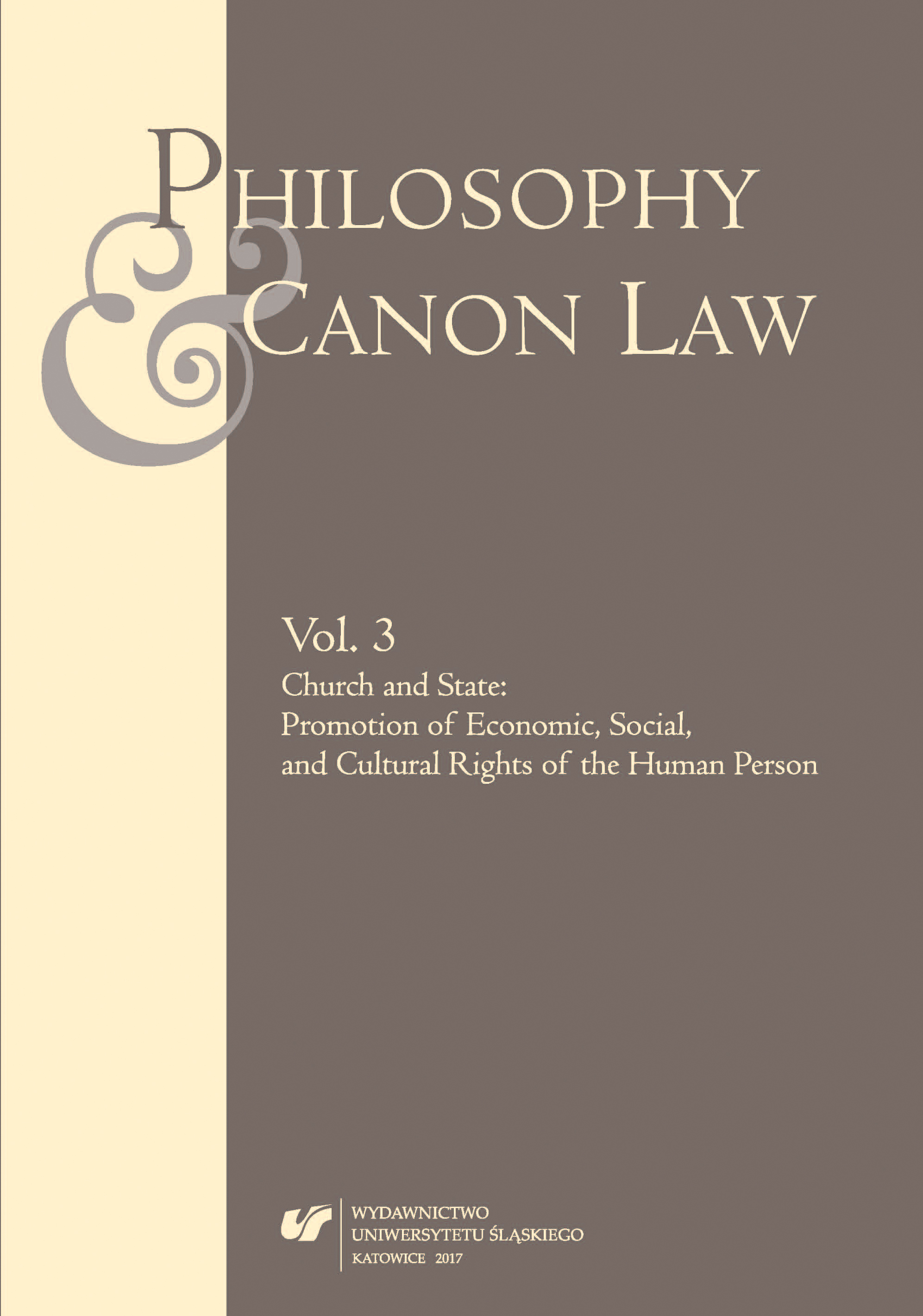The Standpoint of the Holy See on Communism. From Benedict XV to John Paul II
The Standpoint of the Holy See on Communism. From Benedict XV to John Paul II
Author(s): Józef KrukowskiSubject(s): Theology and Religion, Government/Political systems, Canon Law / Church Law
Published by: Wydawnictwo Uniwersytetu Śląskiego
Keywords: Church and State; diplomatic relations; concordat; self government; religious freedom; legal regulations; political system
Summary/Abstract: The article presents the relations of the Holy See, both as the supreme authority of the Roman Catholic Church and subject of the public international relations law, with the authorities of the European communist states. The first part shows the position of the Holy See towards the communist regime of the Soviet Union in the period from the October Revolution till the end of the Second World War. The Holy See started charitable activities for the benefit of starving Russian population and negotiations with the representatives of the Soviet Union. In the first phase, the communist authorities offered the Holy See the termination of an international agreement and normalization of diplomatic relations, but they were unwilling to stop fighting religion and prosecuting the Church. In the second phase, the contacts between the Holy See and the communist authorities were interrupted. It was then that Pope Pius XI came with critical evaluation of ideological assumptions and methods of the communist governance (the „Divini Redemptoris” encyclical). The second part contains a review of relations of the Holy See with the states of Central and Eastern Europe that were imposed by the communist rule after the Second World War, and with the Soviet Union—in the period from the end of the Second World War to the collapse of the communist bloc in Europe. At first, the governments of those countries broke off diplomatic relations with the Holy See as well as the concordat, negotiated in the interwar period, starting to limit the freedoms of Church and discrimination of believers. It was then that the Holy See granted special faculties ( facultates speciales) to the bishops in dioceses in these countries that were to secure the functioning of the Church in a degree that would be close to normal. During the pontificate of John XXIII a dialogue was initiated with the communist governments of the European countries to secure the freedom of religion. Still, those governments aimed at the international support of the Holy See for their policies, while they did not stop to limit religious freedoms. During the pontificate of John Paul II the Holy See put a strong emphasis on supporting Solidarity and the right of self-governance of the nations.
Journal: Philosophy and Canon Law
- Issue Year: 2017
- Issue No: 3
- Page Range: 129-147
- Page Count: 19
- Language: English

